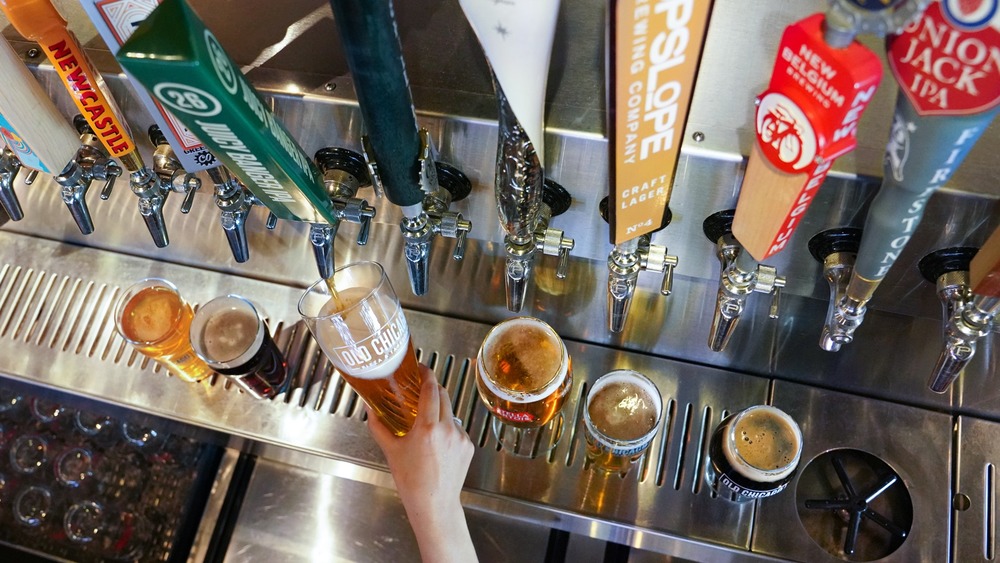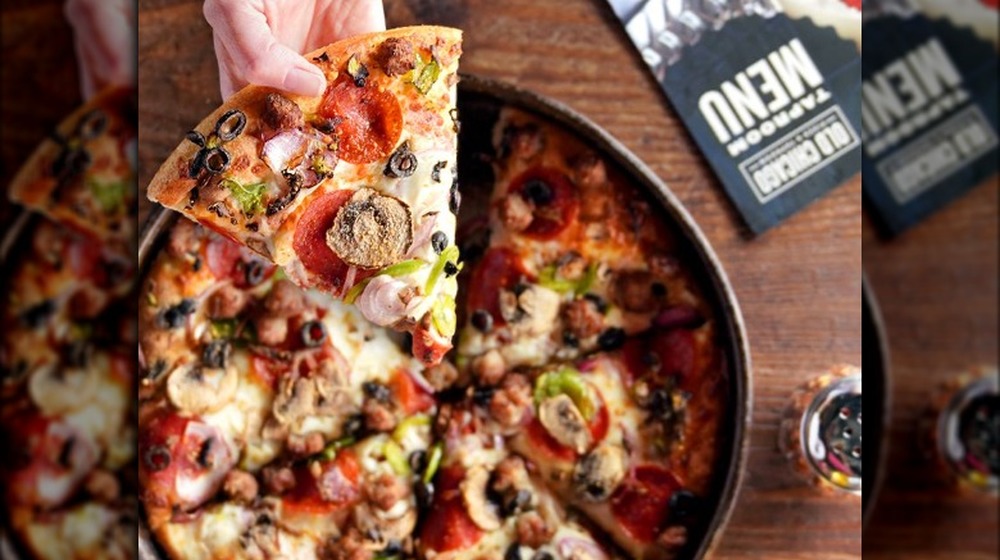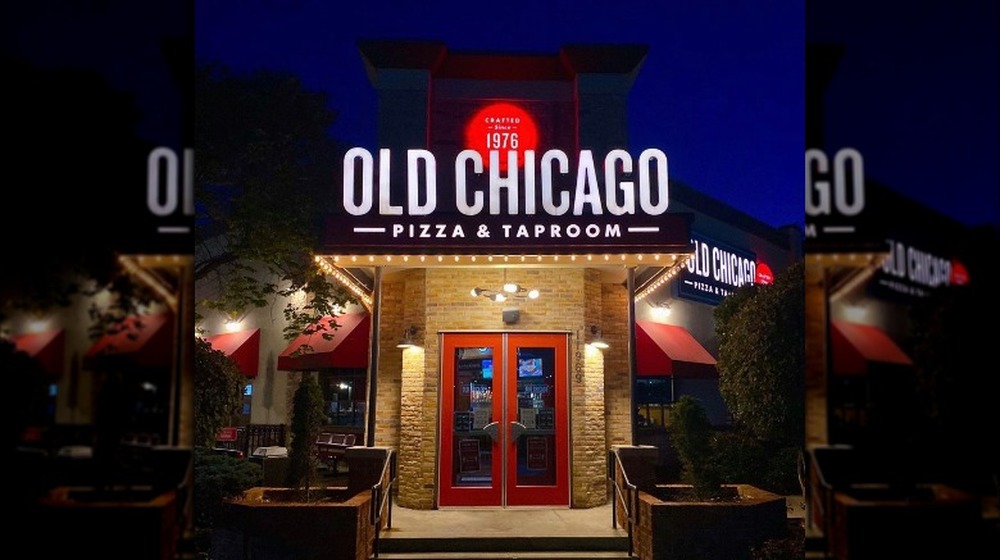The Untold Truth Of Old Chicago Pizza & Taproom
This hasn't been a good year for full-service casual restaurants. The CEO of TGI Fridays told CNBC in September that restaurants in this category have been hit especially hard by COVID-19 because they rely so much on dining-room business. Service has been limited to takeout and delivery only through much of the pandemic. When dining rooms have opened, seating capacity has often been reduced to keep guests at a safe distance from each other.
Individual TGI Fridays restaurants lost 10 to 15 percent of their business this year, which is bad enough. But Old Chicago Pizza & Taproom, a smaller casual restaurant chain, almost didn't get to find out how bad the pandemic would be for business.
Old Chicago's parent company, CraftWorks, filed for bankruptcy in early March then closed all company-owned restaurants later that month after COVID-19 lockdowns took effect (via FSR). At the time, no one knew when, or if, those Old Chicago restaurants would ever open again. Then, in May, a restaurant company associated with one of CraftWorks' biggest lenders stepped up and bought Old Chicago and CraftWorks' other chains for a song: $93 million that included debt forgiven by the lender. New owner SPB Hospitality started reopening Old Chicago restaurants and the other CraftWorks chains right away, to the extent local COVID-19 restrictions allowed (via Restaurant Business).
At Old Chicago, even the burgers have beer in them
Since the financial uncertainty at Old Chicago has been resolved for now, the chain can focus on doing its thing – serving pub food, pizza, and craft beer. Old Chicago takes both food and beer seriously. Old Chicago's top chef says the restaurant chain invented the pepperoni roll and put a spaghetti pie on the menu years ahead of its competitors. Beer is a major ingredient in some of the menu items. Take for example the craft burger, which was demonstrated on a cooking segment on KETV 7 in Omaha: a patty soaked in beer, with caramelized onions, also soaked in beer, and a cheese sauce that contains Guinness.
Old Chicago offers 110 beers, with around 30 on tap (via YouTube). They offer a world beer tour, and after you taste all 110 beers, Old Chicago puts your name on a plaque in the Hall of Foam. (This will take a while. Old Chicago enforces a moderate pace, only giving credit for up to four beers per day.)
Old Chicago goes into local craft breweries to help them make new beers that will be exclusive to Old Chicago restaurants in that region – including a Belgian white called Cracking Wit made with Summit Brewery in St. Paul, Minnesota (via YouTube). Two thriving craft breweries, Oskar Blues and New Belgium, were born after their founders were inspired to make beer during visits to Old Chicago.
After bankruptcy, Old Chicago is poised for growth
No discussion of Old Chicago is complete without mentioning the pizza. It's not Chicago-authentic because it's not as thick as the traditional Chicago deep-dish pizza. Plus, the toppings at Old Chicago are right on top of the pizza, where most customers outside of Chicago might expect to find them. The traditional Chicago-style pizza puts the sauce on the top, with the "toppings" and cheese baked inside (via Vice). Old Chicago also wants to cater to the thin-crust people, so they offer a "tavern style" (via YouTube). The pizza generally gets high marks from reviewers, including a guy on YouTube who says Old Chicago's "Chicago 7" deep-dish is his all-time favorite pizza.
Old Chicago started as a single pizza and beer joint in Boulder, Colorado in 1976. The chain had more than 100 locations recently but was forced to shrink due to weak sales at some locations (via FSR). But the future at Old Chicago looks bright, according to Jim Mazany, the new CEO at SPB Hospitality. He told Franchise Times that Old Chicago has more than 4 million customers in its loyalty program, and the growth of the chain's takeout-pizza business was a bright spot during the pandemic. Mazany plans to grow the number of Old Chicago locations in 2021 and 2022. SPB also acquired Logan's Roadhouse restaurants from CraftWorks in the bankruptcy. "I think about casual dining in the future, and we're positioned strongly with the brands we have," Mazany said.


